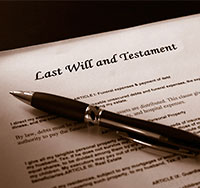Contingency planning for lawyers: Do you have a plan in place for your practice?

LAWPRO encourages lawyers to consider the impact that their unexpected death or incapacity would have on their practices, and to implement a plan to ensure that their clients continue to be served. The following article provides a good overview of issues lawyers should consider when making contingency plans. It originally appear in Hull & Hull LLP’s Solicitor’s Tip of the Month and is reproduced with permission.
Lawyers who assist clients with estate planning may not always provide as much time crafting their own estate and incapacity plans as they do attending to their clients’ needs. While this is largely a personal decision, the absence of comprehensive plans as to the administration of a law practice can prejudice clients in the event of the lawyer’s sudden incapacity, death, or other prolonged and unexpected absence from the office. The impact upon clients can be especially devastating in circumstances where their lawyer operates as a sole proprietorship, without partners or other colleagues who are prepared and able to take on the lawyer’s clients.
Important tools in contingency planning are those with which estate lawyers are already familiar: Last Wills and Testaments and Powers of Attorney. These documents can be used to provide authority to another lawyer (authorized to practice law in Ontario) to administer a law practice and protect the interests of its clients while a lawyer is unable to personally provide representation, without providing control over personal affairs. Within the context of partnerships and law practices operated as professional corporations, partnership and shareholder agreements can also be effective tools in creating a contingency plan. The Law Society of Upper Canada has published a helpful guide that provides further information on this topic and outlines steps that lawyers in Ontario may wish to consider in contingency planning.
Considerations unique to lawyers who assist with estate planning and administration include the following:
- What will happen to original Wills and/or Powers of Attorney stored at the office upon the incapacity or death of the lawyer? What procedure will be in place if clients or their fiduciaries require the original documents on an urgent basis?
- What will happen to the lawyer’s notes with respect to the preparation of estate and incapacity planning documents?
- Who will complete the drafting of Wills for which the lawyer has been provided instructions but has not yet had the opportunity to prepare?
- If the lawyer acts as estate trustee for one or more estates, how will the transition to administration by a succeeding estate trustee be implemented? If necessary, who will account for the lawyer’s administration of the estate(s)?
- If the lawyer acts as attorney for property for one or more individuals, how will notice be provided to an alternate attorney for property and who will assist in the transition in administration? If necessary, who will account for the lawyer’s administration of the incapable’s property?

Leave a Reply